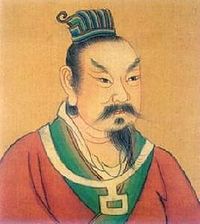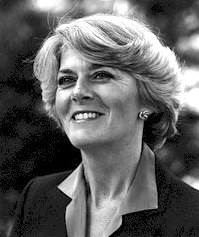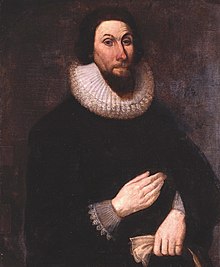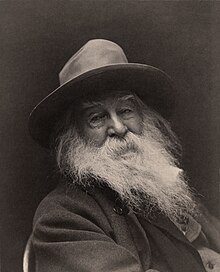March 26 is the 85th day of the year (86th in leap years) in the Gregorian calendar. There are 280 days remaining until the end of the year.
Holidays
- Christian feast day:
- Independence Day and National Day (Bangladesh), celebrates the declaration of independence from Pakistan in 1971.
- Martyr’s Day or Day of Democracy (Mali)
- Prince Kūhiō Day (Hawaii)
- Prophet Zoroaster‘s Birthday (Zoroastrianism)
- Purple Day (Canada)
- Synaxis of the Archangel Gabriel (Eastern Christianity)
History
In 590, Emperor Maurice proclaims his son Theodosius as co-emperor of the Byzantine Empire.

In 908, Emperor Zhu Wen of Later Liang has Li Zhu, the last Tang Dynasty emperor, poisoned.
In 1027, Pope John XIX crowns Conrad II as Holy Roman Emperor.
In 1169, Saladin becomes the emir of Egypt.
In 1344, The Siege of Algeciras, one of the first European military engagements where gunpowder was used, comes to an end.
In 1351, Combat of the Thirty : Thirty Breton Knights call out and defeat thirty English Knights.
In 1484, William Caxton prints his translation of Aesop’s Fables.
In 1552, Guru Amar Das becomes the Third Sikh guru.
In 1636, Utrecht University is founded in the Netherlands.
In 1649. John Winthrop, English lawyer and politician, 2nd Governor of the Massachusetts Bay Colony died of natural causes on 26 March 1649, and is buried in what is now called the King’s Chapel Burying Ground in Boston. He was a wealthy English Puritan lawyer and one of the leading figures in the founding of the Massachusetts Bay Colony, the first major settlement in what is now New England after Plymouth Colony. Winthrop led the first large wave of migrants from England in 1630, and served as governor for 12 of the colony’s first 20 years of existence. His writings and vision of the colony as a Puritan “city upon a hill” dominated New England colonial development, influencing the governments and religions of neighboring colonies. Born into a wealthy landowning and merchant family, Winthrop was trained in the law, and became Lord of the Manor at Groton in Suffolk. Although he was not involved in the founding of the Massachusetts Bay Company in 1628, he became involved in 1629 when the anti-Puritan King Charles I began a crackdown on Nonconformist religious thought. In October 1629 he was elected governor of the Massachusetts Bay Colony, and in April 1630 he led a group of colonists to the New World, founding a number of communities on the shores of Massachusetts Bay and the Charles River.
In 1776, Samuel Ward, British-American jurist and politician, 31st Governor of the Colony of Rhode Island (b. 1725) dies from smallpox at a meeting of the convention in Philadelphia a little more than three months before the Declaration of Independence was signed. He was originally buried in Philadelphia, but in 1860 was reinterred in the Common Burying Ground in Newport, Rhode Island. He was a farmer, politician, Supreme Court Justice, Governor of the Colony of Rhode Island and Providence Plantations, and a delegate to the Continental Congress. The son of an earlier Rhode Island Governor, Richard Ward, he was well educated as he grew up in a large Newport, Rhode Island family. After marrying, he and his new wife received property in Westerly, Rhode Island from his father-in-law, and upon settling there he took up farming. Entering politics as a fairly young man, he soon took sides in the hard money/paper money controversy, favoring hard money, or specie. His primary rival over the money issue was Providence politician Stephen Hopkins, and the two men became bitter rivals, alternating as governors of the colony for several terms.
In 1790, The Naturalization Act is passed by Congress and requires a two-year residency for new citizens. It provided the first rules to be followed by the United States in the granting of national citizenship. This law limited naturalization to immigrants who were free white persons of good character. It thus excluded American Indians, indentured servants, slaves, free blacks, and Asians. It also provided for citizenship for the children of U.S. citizens born abroad, but specified that the right of citizenship did “not descend to persons whose fathers have never been resident in the United States”. It specifies that such children “shall be considered as natural born citizens” — the only U.S. statute to ever use the term “natural born citizen”.
In 1812, An earthquake destroys Caracas, Venezuela.
In 1812, A political cartoon in the Boston Gazette coins the term “gerrymander” to describe oddly shaped electoral districts designed to help incumbents win reelection.
In 1827, Ludwig van Beethoven, German pianist and composer (b. 1770) dies. He was a German composer and pianist. A crucial figure in the transition between the Classical and Romantic eras in Western art music, he remains one of the most famous and influential of all composers. His best-known compositions include 9 symphonies, 5 concertos for piano, 1 violin concerto, 32 piano sonatas, and 16 string quartets. He also composed other chamber music, choral works (including the celebrated Missa solemnis), and songs.
Born in Bonn, then the capital of the Electorate of Cologne and part of the Holy Roman Empire, Beethoven displayed his musical talents at an early age and was taught by his father Johann van Beethoven and by Christian Gottlob Neefe. During his first 22 years in Bonn, Beethoven intended to study with Wolfgang Amadeus Mozart and befriended Joseph Haydn. Beethoven moved to Vienna in 1792 and began studying with Haydn, quickly gaining a reputation as a virtuoso pianist. He lived in Vienna until his death. In about 1800 his hearing began to deteriorate, and by the last decade of his life he was almost totally deaf. He gave up conducting and performing in public but continued to compose; many of his most admired works come from this period.
In 1830, The Book of Mormon is published in Palmyra, New York.
In 1839, The first Henley Royal Regatta is held.
In 1845, a patent is awarded for an adhesive medicated plaster, precursor of the band aid.
In 1858, John Addison Thomas, American lieutenant, engineer, and diplomat (b. 1811) died in Paris, France on March 26, 1858. He was an American engineer and military officer who served in the United States Army, and later served as United States Assistant Secretary of State. Thomas was born in Tennessee in 1811. He graduated at the United States Military Academy in 1833 and was assigned to the 3rd artillery, served in garrison and as assistant instructor of infantry tactics and became 2nd lieutenant on December 1, 1835 and 1st lieutenant on June 30, 1837. From 1840 to 1841 he was assistant professor of geography, history and ethics at West Point and from 1842 to 1845 he was commandant of cadets and instructor of infantry tactics. He was made captain on November 19, 1843 and resigned on May 28, 1846 to practice law in New York City, New York. On July 23, 1846, he became colonel of the 4th New York regiment which had been raised for the war with Mexico, but was not mustered into service. Thomas was chief engineer of New York state in 1853 to 1854 and from April 19, 1853 to January 14, 1854 was advocate of the United States in London, England under the convention of February 8, 1853 with Great Britain for the adjustment of American claims. From November 1, 1855 to April 3, 1857 he was United States Assistant Secretary of State in Washington, D.C. He gained reputation by his report of the convention with Great Britain and by other state papers.
In 1862, Uriah P. Levy, American commander (b. 1792) dies. He was a naval officer, real estate investor, and philanthropist. He was a veteran of the War of 1812 and the first Jewish Commodore of the United States Navy. He was instrumental in helping to end the Navy’s practice of flogging, and during his half-century-long service prevailed against the antisemitism he faced among some of his fellow naval officers. An admirer of Thomas Jefferson, Levy purchased and began the restoration of Monticello in the 1830s; he also commissioned and donated a statue of Jefferson that is now located in the Capitol Rotunda; it is the only privately commissioned artwork in the Capitol. Levy served as the first president of the Washington Hebrew Congregation in Washington, DC. Upon Levy’s death in 1862, Levy left Monticello to the American people to be used as an agricultural school for the orphans of Navy warrant officers. Due to the American Civil War, Congress refused to accept the donation. The Confederate government seized and sold the property; Levy’s lawyers for his estate recovered the property after the war. In 1879 his nephew Jefferson Monroe Levy bought out the other heirs for $10,050, and took control of Monticello. He had it repaired and restored. He sold it in 1923 to the Thomas Jefferson Memorial Foundation, which has renovated and restored the property as a house museum.
In 1881, Thessaly is freed and becomes part of Greece again.
In 1885, The Métis people of the District of Saskatchewan under Louis Riel begin the North-West Rebellion against Canada.
In 1892, Walt Whitman, American poet and author (b. 1819) dies. An autopsy revealed his lungs had diminished to one-eighth their normal breathing capacity, a result of bronchial pneumonia, and that an egg-sized abscess on his chest had eroded one of his ribs. The cause of death was officially listed as “pleurisy of the left side, consumption of the right lung, general miliary tuberculosis and parenchymatous nephritis.” He was an American poet, essayist and journalist. A humanist, he was a part of the transition between transcendentalism and realism, incorporating both views in his works. Whitman is among the most influential poets in the American canon, often called the father of free verse. His work was very controversial in its time, particularly his poetry collection Leaves of Grass, which was described as obscene for its overt sexuality.
Born in Huntington on Long Island, Whitman worked as a journalist, a teacher, a government clerk, and—in addition to publishing his poetry—was a volunteer nurse during the American Civil War. Early in his career, he also produced a temperance novel, Franklin Evans (1842). Whitman’s major work, Leaves of Grass, was first published in 1855 with his own money. The work was an attempt at reaching out to the common person with an American epic. He continued expanding and revising it until his death in 1892. After a stroke towards the end of his life, he moved to Camden, New Jersey, where his health further declined. When he died at age 72, his funeral became a public spectacle. Whitman was concerned with politics throughout his life. He supported the Wilmot Proviso and opposed the extension of slavery generally. His poetry presented an egalitarian view of the races, though his attitude in life reflected many of the racial prejudices common to nineteenth-century America and his opposition to slavery was not necessarily based on belief in the equality of races per se. At one point he called for the abolition of slavery, but later he saw the abolitionist movement as a threat to the republic.
In 1913, Balkan Wars: Bulgarian forces capture Adrianople.
In 1915, Ice hockey: The Vancouver Millionaires sweep the Ottawa Senators three-games-to-none to win the 1915 Stanley Cup Finals, the first championship played between the Pacific Coast Hockey Association and the National Hockey Association.
In 1917, World War I: First Battle of Gaza – British troops are halted after 17,000 Turks block their advance.
In 1922, The German Social Democratic Party is founded in Poland.
In 1931, Swissair is founded as the national airline of Switzerland.
In 1931, Ho Chi Minh Communist Youth Union is founded in Vietnam.
In 1934, The United Kingdom driving test is introduced.
In 1939, Spanish Civil War: Nationalists begin their final offensive of the war.
In 1942, World War II: The first female prisoners arrive at Auschwitz concentration camp in German-occupied Poland.
In 1945, World War II: The Battle of Iwo Jima ends as the island is officially secured by American forces.
In 1955, Dr. Jonas Salk announced a new vaccine to immunize people against polio.
In 1956, Diamonds Are Forever is the fourth novel by the English author Ian Fleming to feature his fictional British Secret Service agent James Bond. Fleming wrote the story at his Goldeneye estate in Jamaica, inspired by a Sunday Times article on diamond smuggling. The book was first published on 26 March 1956. The story centers on Bond’s investigation of a diamond-smuggling operation that originates in the mines of Sierra Leone and runs to Las Vegas. Along the way Bond meets and falls in love with one of the members of the smuggling gang, Tiffany Case. Fleming’s background research formed the basis for his non-fiction 1957 book The Diamond Smugglers. The Bond novel received broadly positive reviews at the time of publication. It was serialized in the Daily Express newspaper, first in an abridged, multi-part form and then as a comic strip. In 1971 it was adapted into the seventh film in the Bond series, and the sixth one to star Sean Connery as Bond.
In 1958, The United States Army launches Explorer 3.
In 1958, The African Regroupment Party is launched at a meeting in Paris.
In 1964, The U.S. Supreme Court gave federal courts the power to order reapportionment of seats in a state legislature, a decision that eventually led to the doctrine of “one man, one vote”. The phrase was used in this form in an important legal ruling in the United States related to voting rights; applying the Equal Protection Clause of the US Constitution, the Supreme Court majority opinion in Reynolds v. Sims (1964) ruled that state legislatures needed to redistrict in order to have congressional districts with roughly equal represented populations. In addition, the court ruled that both houses of state legislatures needed to have representation based on districts containing roughly equal populations, with redistricting as needed after censuses. Many urban areas of the United States had been long underrepresented in Congress and state legislatures due to the failure of the latter to redistrict according to population.
In 1967, Ten thousand people gather for one of many Central Park be-ins in New York City
In 1971, East Pakistan declares its independence from Pakistan to form the People’s Republic of Bangladesh and the Bangladesh Liberation War begins.
In 1974, Gaura Devi leads a group of 27 women of Laata village, Henwalghati, Garhwal Himalayas, to form circles around trees to stop them being felled and giving rise to the Chipko movement in India.
In 1975, The Biological Weapons Convention comes into force.
In 1978, Four days before the scheduled opening of Japan’s Narita International Airport, a group of protestors destroys much of the equipment in the control tower with Molotov cocktails.
In 1979, Anwar al-Sadat, Menachem Begin and Jimmy Carter sign the Egypt–Israel Peace Treaty in Washington, D.C.
In 1982, A groundbreaking ceremony for the Vietnam Veterans Memorial is held in Washington, D.C..
In 1991, Argentina, Brazil, Uruguay and Paraguay sign the Treaty of Asunción, establishing Mercosur, the South Common Market.
In 1991, Five South Korean boys, nicknamed the Frog Boys, disappear while hunting for frogs and are murdered in a case that remains unsolved.
In 1991, Local self-government is restored after three decades of centralized control in South Korea.
In 1995, The Schengen Treaty comes into effect.
In 1997, Thirty-nine bodies are found in the Heaven’s Gate mass suicides.
In 1998, Oued Bouaicha massacre in Algeria: Fifty-two people are killed with axes and knives, 32 of them babies under the age of two.
In 1999, The “Melissa worm” infects Microsoft word processing and e-mail systems around the world.
In 1999, A jury in Michigan finds Dr. Jack Kevorkian guilty of second-degree murder for administering a lethal injection to a terminally ill man.
In 2005, The Taiwanese government calls on one million Taiwanese to demonstrate in Taipei, in opposition to the Anti-Secession Law of the People’s Republic of China. Around 200,000 to 300,000 attend the demonstration.
Desmond T. Doss, Sr.

In 2006, Desmond T. Doss, Sr., the only conscientious objector to win the Congressional Medal of Honor during World War II, has died. He was 87 years old.
Mr. Doss never liked being called a conscientious objector. He preferred the term conscientious cooperator. Raised a Seventh-day Adventist, Mr. Doss did not believe in using a gun or killing because of the sixth commandment which states, “Thou shalt not kill” (Exodus 20:13). Doss was a patriot however, and believed in serving his country.
During World War II, instead of accepting a deferment, Mr. Doss voluntarily joined the Army as a conscientious objector. Assigned to the 307th Infantry Division as a company medic he was harassed and ridiculed for his beliefs, yet he served with distinction and ultimately received the Congressional Medal of Honor on Oct. 12, 1945 for his fearless acts of bravery. . . .
On one occasion in Okinawa, he refused to take cover from enemy fire as he rescued approximately 75 wounded soldiers, carrying them one-by-one and lowering them over the edge of the 400-foot Maeda Escarpment. He did not stop until he had brought everyone to safety nearly 12 hours later.
In 2010, The ROKS Cheonan sinks off the west coast of South Korea near Baengnyeong Island in the Yellow Sea, killing 46 seamen. After an international investigation, the President of the United Nations Security Council blames North Korea.

In 2011, Geraldine Ferraro, American lawyer and politician (b. 1935) dies on March 26, 2011, from multiple myeloma, 12 years after being diagnosed. She was an American attorney, a Democratic Party politician, and a member of the United States House of Representatives. She was the first female vice presidential candidate representing a major American political party.
Ferraro grew up in New York City and worked as a public school teacher before training as a lawyer. She joined the Queens County District Attorney’s Office in 1974, heading the new Special Victims Bureau that dealt with sex crimes, child abuse, and domestic violence. In 1978 she was elected to the U.S. House of Representatives, where she rose rapidly in the party hierarchy while focusing on legislation to bring equity for women in the areas of wages, pensions, and retirement plans. In 1984, former vice president and presidential candidateWalter Mondale, seen as an underdog, selected Ferraro to be his running mate in the upcoming election. Ferraro became the only Italian American to be a major-party national nominee in addition to being the first woman. The positive polling the Mondale-Ferraro ticket received when she joined soon faded, as damaging questions arose about her and her businessman husband’s finances and wealth and her Congressional disclosure statements. In the general election, Mondale and Ferraro were defeated in a landslide by incumbentPresident Ronald Reagan and Vice President George H. W. Bush. Ferraro ran campaigns for a seat in the United States Senate from New York in 1992 and 1998, both times starting as the front-runner for her party’s nomination before losing in the primary election. She served as a United States Ambassador to the United Nations Commission on Human Rights from 1993 until 1996, in the presidential administration of Bill Clinton. She also continued her career as a journalist, author, and businesswoman, and served in the 2008 presidential campaign of Senator Hillary Clinton.
In 2014, A massive fire breaks out in Back Bay, Boston killing 2 firefighters and injuring at least 18 people.
In 2014, Government says Northwestern players have the right to unionize. In a move that is rekindling the debate over amateurism in NCAA sports, the National Labor Relations Board on Wednesday declared that Northwestern University football players on full scholarships are in essence school employees, so they have the right to unionize. The NLRB said it would supervise the vote. If the majority backs a union, athletes at other private schools could follow.
In 2014, Mayor Patrick Cannon of Charlotte — North Carolina’s largest city — resigned Wednesday night after being arrested and accused of taking tens of thousands of dollars in bribes. The 49-year-old Democrat, who took office just four months ago, allegedly accepted a briefcase stuffed with $20,000 in his office last month, and was scheduled to meet undercover FBI agents posing as businessman for another payoff in exchange for his influence. [Charlotte Observer]
In 2014, The Jackson Sun reported that the city of Jackson was ranked by Motovo Real Estate as the third most dangerous city in the United States. Motovo is a real estate brokerage firm, licensed in over thirty states. Motovo has local representation in Madison and Chester County in Tennessee and is licensed in the state.
In 2015, Saudi Arabia begins its military intervention in Yemen , which led to deaths of thousands of people, many of whom were civilians.
In 2017, Russia-wide anti-corruption protests in 99 cities. The Levada Center survey showed that 38% of surveyed Russians supported protests and that 67 percent held Putin personally responsible for high-level corruption.






